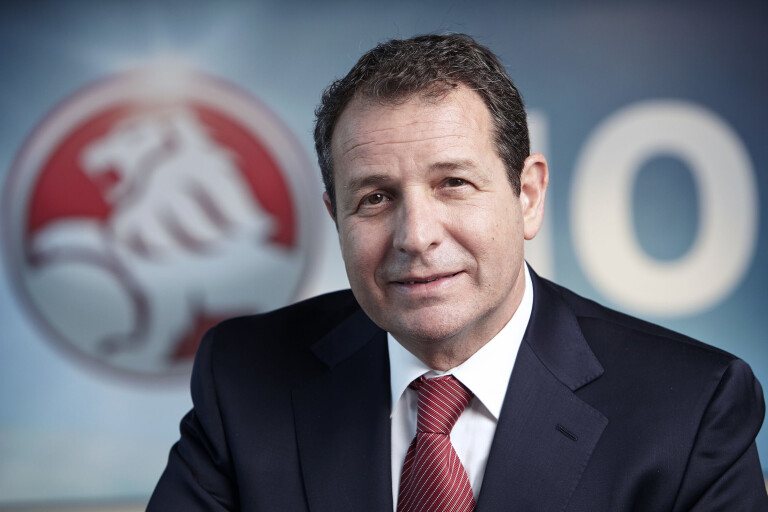
HOLDEN wants to be number one as a full-line importer by 2020, according to new chairman and managing director Gerry Dorizas – significantly, the first appointee
from outside the GM family to head the brand.
Speaking publicly for the first time since taking office on 1 March, the Greek national believes an energised dealer network, the right products and “delighting
customers” are key to achieving this ambitious goal.
Dorizas’ revelation that Holden aspires to be number one again didn’t come as a surprise to sales and marketing boss Phillip Brook, the man charged with achieving that goal, though his decision to reveal it publicly certainly did.
“Can I say this?” Dorizas asked, looking towards Brook, before continuing. “The point where we want to go is to go back to number one.”
Toyota has held the top spot since taking it from Holden in 2003. Last year, the Japanese brand sold 214,630 new vehicles, giving it 18.9 percent share of the
market. By comparison, Holden sold 112,059 last year (9.9 percent share), of which almost half were Commodore and Cruze models built at the Elizabeth factory
scheduled to close in 2017.
Dorizas believes the days of one brand dominating the market are coming to a close. He agrees that Australia is one of the world’s most competitive new-car markets and expects that a 15 percent market share will secure top spot in 2020.
“The market [leader] at this time is Toyota at 18 percent. [It] was 21 percent the year before, so as you can see market shares are going to start levelling out. I can’t see that we’re going to be 20 percent. But I believe that it will be 15 percent
one brand, 14 percent the other. Everything will come closer together.”
He considers himself a commercial guy and says that, while “Holden will always
historically be Australian”, there is a need to redefine the brand for its future as a full-line importer.
“I’ve got a fair amount of understanding where we are and what has to be done. [We must] redefine the brand of Holden, not in terms of what the DNA is, but to make it more young, more modern.”
The way to do that, says Dorizas, is with consistent communications and the right product portfolio – which he declined to reveal.
“We will tell you when we’re ready. We’re working on it.” Wheels understands Europe will be a prime source of product for Holden, including the Opel Astra
and Corsa. How this fits with the Korean-sourced Barina and soon-to-be Korean-sourced Cruze remains to be seen.
Dorizas sees upside in Holden’s massive ‘car park’, its owner base. “It’s a market reality here that our dealers do not take care of their customers. We don’t service the car park that we have in Australia. That’s something that we have to work on, to get our customers back. We have to delight our customers. Work with our dealers in training, from the technicians, service advisors, sales people, right up to me. We will innovate this market, and we will get our customers back.
“All companies proclaim that they are very customer oriented. Well, at Holden we really want to be customer oriented. We want to have the best customer satisfaction.”
This focus on customer satisfaction may be new for Holden, but it’s nothing new to the wider car industry. Importers such as Subaru, Mazda and many others depend on returning customers for a large portion of sales, as much as 60 percent with some models.
According to a 2013 JD Power survey of American customer service experiences, 38 percent of owners ‘satisfied’ with the purchase and servicing experience indicated they “definitely will” purchase their next vehicle from the same brand.
That figure rises to 59 percent for ‘delighted’ owners. Still, the sales potential for Holden is huge, because Holden’s car park is so big. Dorizas knows he must have dealer commitment to pull this off.
“This is an industry that is changing. It’s going to become like Europe, like anywhere else in the world. From a sales-oriented market, it will become a service-oriented market.
“[To achieve this] it’s important to have the best – satisfied – dealer network. If the dealers are satisfied and profitable, they tend to invest with customers. It’s very important for us to be partners and work together with the network.”
Current new-car pricing levels are not sustainable, says Dorizas, and probably not sufficient to bankroll his planned customer service revolution.
“It is incredible to see the prices of cars here in Australia are less than the prices in Europe, with the cost of living being more expensive, if not double, that of Germany. That is not sustainable. And, by the way, there are quality issues. If
the whole industry doesn’t make money, how are they going to invest into products, into training, into the quality issues?”
So, even with the prospect of a tariff removal in the near future, Dorizas believes new-car prices are destined to rise.
“I believe they will go up at some particular time … How profitable are the dealers today with these sales? With the pushing of the market that is happening? With
some companies pushing cars in order to do numbers? At some particular point, this competition of prices will create a problem in the network – I’m talking about the total market. The whole situation will change. Every market will go through this.
“Our business is to satisfy our customers – whether that is to have a great product – it is to bring the customers back to our service. That is the way you keep the customers. High quality, high satisfaction.”

COMMENTS